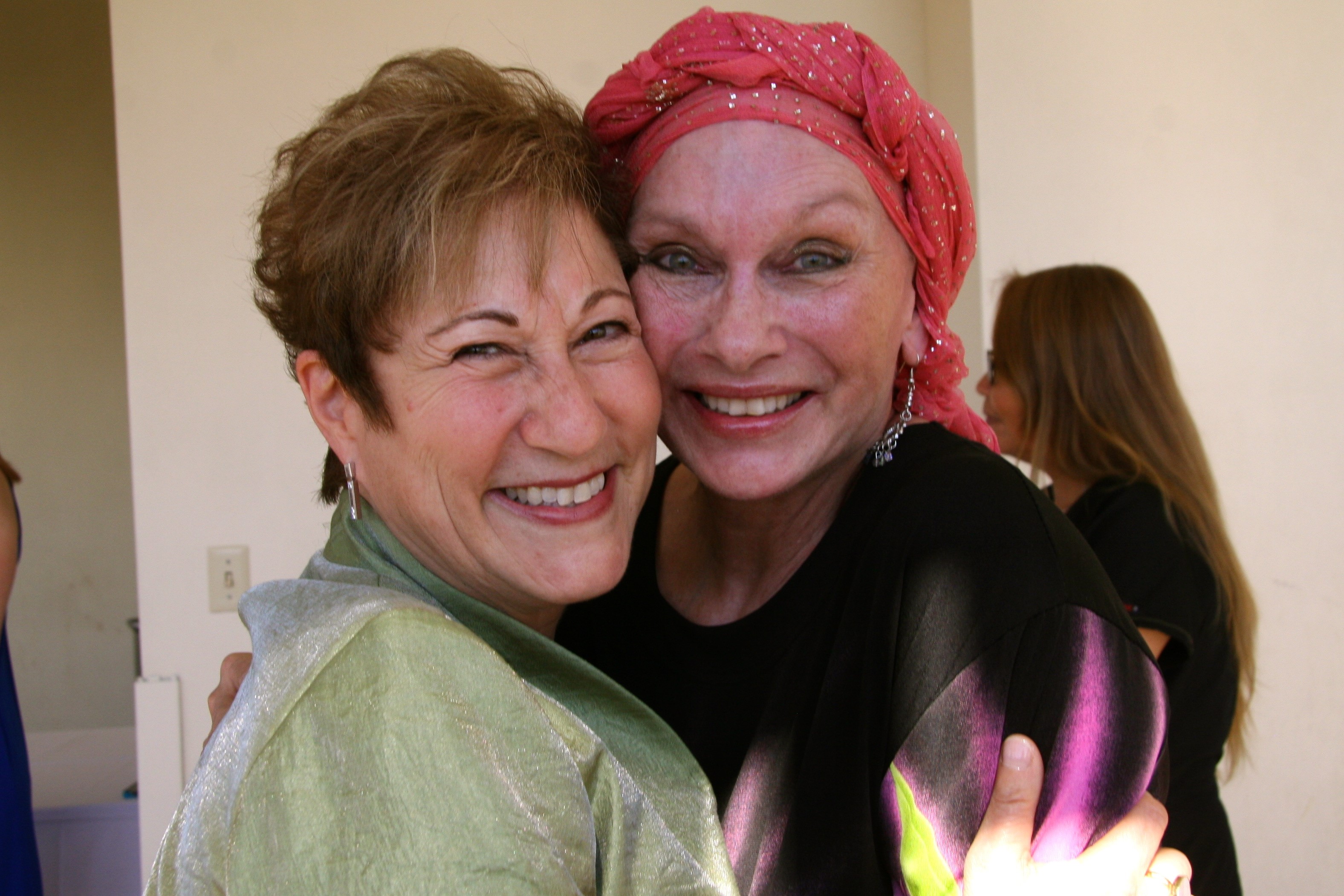
“Since you get more joy out of giving joy to others, you should put a good deal of thought into the happiness that you are able to give.”
-Eleanor Roosevelt
Can you remember a time as a child, when you got sick, cut your finger, or fell off a bike and scraped your knee? Did you wash off your little “boo-boo” and put a band-aid on it yourself, or was someone else there to help and care for you? How about when you got sick? Did you have someone there to take care of you? Did -you ever take care of someone else who was sick or hurt? Growing up as children, at one time or another, we have been sick, hurt, scraped our knees, or even broke a bone or two. These experiences are all part of growing up.
If any of these scenarios has ever happened to you, welcome to the mysterious and wondrous world of caregiving. In this article, we are going to explore what caregiving means, in particular for a loved one facing their last days of life, address caregiver/patient rights, and expose how important it is for caregivers to take care of themselves while taking care of others.
Since the beginning of humanity, we have been taking care of and for one another. It’s in our nature. We begin by caring for our babies when they are born. Since human babies are 100% dependent on their caregivers for their every need, it is up to their caregivers to make sure they are fed and cared for properly, otherwise they would die right away.

On the other side of the spectrum of life, we also care for those who are chronically ill, have special needs, or who are dying, all unable to care for themselves.
There is some mysterious and wondrous gift that makes caregivers want to be caregivers. What is it that makes them want to be in situations where they face people who are sick, dying and families crying tons of tears and feeling rather impotent to care for their loved one without transferring feelings of despair and sadness? Do they become immune to it? How do they handle themselves through it all?
If you enjoy working with people and have one on one interactions with people, enjoy taking care of people, especially older adults, or, you get along well with a variety of people, you have an innate yen to be in service and make a difference in someone’s life, enjoy doing a variety of tasks, and you’re a team player, then you have the foundations to make a good caregiver. Furthermore, you enjoy seeing people smile and you love doing little things to make a person’s day better, you take pride in your attention to detail, and you like being physical and using your body and your brain, willing to learn new skills and open to invest in furthering your education and doing a job well, then all of these qualities make you the epitome of a caregiver.
From a caregiver’s perspective, caregiving is a gift and is a gift for both the caregiver and the care-receiver, when handled with honor, dignity, and regard for both people involved. Serving another human being is one of the greatest honors we can bestow upon each another. What we receive in return is something no one can explain. Being a natural caregiver myself, I can say that caregiving gives me a deep sense of fulfillment, knowing that I give of myself to care for another human being, even though it is sometimes challenging, it goes beyond the intellect and straight to the heart of what’s important in life.

What is a caregiver?
The term “caregiver” has been described as an unpaid or paid person, helping any person who has a health impairment with his or her activities of daily living. A person with a health impairment might use caregiving services to address their difficulties.”[1] Caregiving goes deeper than the physical. When we, as humans, are able to express genuine care for another and are filled with compassionate caring as a professional and you feel cared for in return, a feeling of well-being enters our heart and our soul.
Caregiving is about improving the quality of life for people, and it is not always an easy job. There are a lot of balls to juggle. Over 44 million caregivers in the United States alone play a majority role in maximizing the quality of life in more than 300 million individuals with acute and chronic illness,[2] providing and maintaining well-being for those they care for.[3]
Types of Caregivers: Nonpaid and Paid Caregivers.
Nonpaid Caregivers.
In some families, family members step up to personally care for whoever is ill, known as, nonpaid caregivers. They do it out of love, a sense of caring and responsibility towards the one they love (and usually are the higher-hour caregivers because they care out of love). Much of the time they put themselves at the end of the line, giving selflessly. And what happens when there is no other help? They end up getting depleted and it’s understandable. So, how do they replenish themselves?
Wearing many hats, nonpaid caregivers can sometimes serve as chef, pillow “fluffer”, personal shopper, nurse, dog sitter/walker/groomer, chauffeur, event planner, secretary, housekeeper, therapist, and even gardener, doing laundry, paying bills, income taxes, shampooing carpets, and many more. The services provided could even include personal grooming, such as manicures, pedicures, facials, cutting, and coloring hair. The list is endless.
It’s important to especially hold a great deal of appreciation for this level of caregiving, as caregivers in this capacity give continually, sometimes even getting lost in the caregiving of others, putting their own lives on hold.
Paid Caregivers.
The other type of caregivers is known as paid caregivers.[4] These professional caregivers either come in daily or live and work in the patient’s home to administer necessary care, usually with elderly individuals, chronically ill patients or people with special needs. They can work part time, full time or even volunteer. And, it’s important to know that no matter how much time they devote, caregivers have the right to be protected.[5] And it’s also important to know what those rights and parameters are, to save themselves from stress, or legal issues later. It’s a big responsibility to be a caregiver.
On the flip side, it is essential to find quality caregivers that can be trusted to assure that the patient is protected and cared for with the highest honor, dignity, and regard, because being sick, incapacitated or dying can bring on a sense of shame in the patient, especially when sickness is oftentimes viewed in our Western society as being seen as, “weak”. Caregivers are unique and special beings, but a word of caution too here just to say that not every caregiver will possess the qualities of integrity, respect, and compassion.
 I’d like to share a story of my friend Toni, who was diagnosed with Stage II breast cancer in January of 2011, faced with the dilemma of no longer being able to care for her husband Gene, who had had Parkinson’s for 12 years prior to her diagnosis. She didn’t know what to do. Someone had to take care of him AND her, for she was headed down a path of multiple surgeries, radiation, and chemo treatments.
I’d like to share a story of my friend Toni, who was diagnosed with Stage II breast cancer in January of 2011, faced with the dilemma of no longer being able to care for her husband Gene, who had had Parkinson’s for 12 years prior to her diagnosis. She didn’t know what to do. Someone had to take care of him AND her, for she was headed down a path of multiple surgeries, radiation, and chemo treatments.
As a friend and a life to dying coach, she asked me to help guide her through their experience, so I stepped in as her initial caregiver, helping her to assess the whole picture to see how we could navigate the journey in a sacred, healing manner, bringing honor, dignity, and regard, and add in a lot of humor especially given the dire circumstances.
In reviewing the possibilities, Toni had a Long-Term Health Insurance policy in place, so after she came home from the hospital, she was able to hire a full time paid caregiver for herself. Gene did not have a Long-Term Health Insurance policy, so he was not covered. It was a predicament because Toni could not care for Gene personally any longer.
After surgery number one, we hired a full time, live-in caregiver through Toni’s policy. She was kind, considerate, professional, and just what was needed (for both). Several months later, in order to renew the need of the caregiver’s services, the insurance company conducted a private investigation, taking hidden pictures of the caregiver getting Gene in and out of the car, putting him in a wheelchair and pushing him down the street to the doctor’s office since Toni no longer had the strength to push him.
Upon further investigation and review, the insurance company stated that unless Toni relinquished the policy, they would file a lawsuit for fraud, because the caregiver was caring for Gene, and not Toni. Of course, the caregiver took care of Toni, but if Toni had to go to the doctor with Gene, she couldn’t push Gene’s wheelchair, so the caregiver helped her and Gene with these things.
Toni agreed to let go of the policy and was left without a full-time caregiver for either one of them. Without the income necessary to pay a professional home care company, she “found” people who would not take much money. This was a very hard situation to be in, relying on the graces of nonprofessional people who were caring, but really didn’t have the skills necessary to handle the situation.
The first live-in caregiver, turned out to be a thief and a drug addict, robbing them of their valuables. The second caregiver was a neighbor who walked their husky every day, but was high strung, harsh in her ways and turned out to be a whack-a-doodle, threatening to turn them in for not feeding their dog raw meat. The third caregiver was a woman with a dog of her own, who didn’t care for them very well, totally taking advantage of them. She was a such a nuisance they needed legal action to evict her and her dog. This took time and created much stress in their lives. As much as caregivers have rights, patients have rights too.
Therefore, i
f you are someone looking for a caregiver, here are some qualities/characteristics/skills to look for:
- Is professional & courteous
- Has good recommendations/references
- Has experience
- Is compassionate & caring
- Has the ability to communicate with doctors/other healthcare professionals
- Is in alignment with what the patient needs/desires
- Gets along with the family members without imposing – a natural at picking up cues, knowing where the boundary line of appropriateness is, and just a knowledge of where his/her place is
For the most part, paid caregivers are reliable, competent, and caring human beings, so let’s talk about their rights.
Caregiver Rights.
Going on the assumption that paid caregivers are professionally trained to take care of their patients with skill, compassion, and heart, it’s important to know what caregiver rights are in place for the caregivers.
If you are a caregiver or know someone who is, there are many resources caregivers can rely on to know what their rights are as a caregiver. You can go on such websites as, the Family Caregiver Alliance, the National Center on Caregiving.[6] They address the caregiver’s specific needs, issues and strategies. The National Alliance for Caregiving is also a great resource, giving the caregiver a voice to better support their care.[7] Caring.com is another great resource that will help you find support, from learning how to deal with caregiver stress to dealing with the holidays to end of life care, to food & fitness to money & legal matters.[8]
Caregiver’s Responsibilities to Self and Others
Because caregivers spend so much time and energy caring for others, when the caregiver needs caring for himself or herself, it’s important to know that it’s okay to ask for help and to find outside resources that will help. It’s also important to know that caregivers have a voice,[9] and that someone is listening and offering support/assistance. We are all human beings, no matter what role we play, and we all need appreciation and validation, knowing and feeling that what we do matters. For caregivers, making a difference in people’s lives is food for the soul.
There are various issues that come up for caregivers. Making sure there is an Advanced Medical Directive in place/POLST (Physician Orders for Life-Sustaining Treatment)[10] for the patient is extremely important. In fact, all documents of this nature need to be put in a folder that is easily found, along with all pertinent information about the client’s medical/physical needs, as well as personal desires the patient has expressed.
All caregivers need caring for themselves. Have you ever been on an airplane and heard the announcement if oxygen is needed? They instruct you to put your mask on FIRST, then help someone else. So, what to do when a nonpaid caregiver gives 21 hours a day with no relief? What then? How do they get a break? And, what happens when help steps in? What kind of support is needed/expected/given?
There are some possible benefits for caregivers that you may not know about. The American Association of Retired Persons (AARP) has put together a list of resources for existing programs that support caregivers. There are state programs, benefits for Veterans, Long-term care insurance information, and caregiver contracts that can be written up to protect the caregiver.[11]
There are primary caregiver rights to be aware of legally, ethically, socially, spiritually, emotionally, mentally and physically.[12] If you are a caregiver, from a social perspective, it’s important to:
- Take charge of your life
- Be good to yourself
- Watch out for signs of depression
- Accept help: be specific with areas others can help
- Educate yourself about your loved one’s condition
- Trust your instincts
- Let yourself grieve
- Seek support from other caregivers
From a spiritual perspective, it’s important to be mindful that you are treating more than the body. You are treating the mind and spirit as well. It’s also important to understand your patient’s rights, as well. From an emotional perspective, know that YOU ARE NOT ALONE. Rely on others to nourish YOU whenever possible. Mentally, find outside stimulation, and physically, know what you AND your patient need.[13]
There are ways to protect yourself, as a caregiver, and the person you are caring for. Having an Elder Law Attorney review any documents before you and your patient (or patient’s representative) sign anything. Keep impeccable records. I suggest you use a spreadsheet to record all medications, dosage to record time, and day of medication. Make sure all records pertaining to the house, ie: bank statements, tax records, bank ledgers, and other related pertinent items are in order. By all means, it is not recommended to accept gifts. If you use your patient’s credit card to do some shopping, make sure you keep all receipts and if they give you cash, make sure you keep the receipts and give back the change. Be exact. If something costs more than you have, put something back until next time. Always be impeccable with your word and with your actions, so that there is no question about anything you do.

Managing your time is crucial, and that means carving out time for YOU, as the caregiver. Yoga, meditation, journaling, walking in nature, listening to music, taking a bath (filled with rose petals), dancing, having lunch with a friend, are just a few ways to release stress and create more space for a sense of peace, calm and well-being to take place. Then you have something to give. If your energy is depleted, you have nothing left to give. It’s always crucial that you take care of your own needs, while you are tending to the needs of others.
Summary
There is no question that you, as a caregiver, and all caregivers everywhere are very special human beings. You have compassion and genuinely care about others. That, in and of itself, is a gift, for there is nothing more important than to give another human being honor, dignity, and regard, especially when they are vulnerable, relying on the care of others, faced with their own mortality.
In this article, we have explored what caregiving means, addressed caregiver/patient rights, given you a few resources, and have seen how important it is for caregivers to take care of themselves while taking care of others.
Here’s to all the caregivers in the world. May you know the blessing of who you are and what you give. May you know you have a right to take care of yourself. May you know you are not alone. May you know that life is a journey and that you are entitled to feel a variety of emotions. May you know you have support and resources you can rely on. May you know not to get so lost in the caregiving that you have no life at all. May you know that you are serving humanity in the greatest of ways and that you are making a difference in this world. May you know that when caregiving comes from the heart, it fills you up with the joy of knowing that you are increasing the quality of someone’s life, including your own. May you know that you are valued and appreciated beyond words. May you know that you are a unique, special human being.

May you know it’s your life. Enjoy the journey. And, remember to bring love into everything you do.

References:
[1] https://en.wikipedia.org/wiki/Caregiver
[2] https://www.ncbi.nlm.nih.gov/pmc/articles/PMC2839338/
[3] http://www.caregiving.org/about/about-the-alliance/
[4] https://www.care.com/c/stories/2678/what-caregivers-need-to-know-about-the-domest/
[5] https://www.expertlaw.com/forums/showthread.php?t=118891
[6] https://www.caregiver.org/caregiving-issues-and-strategies
[7] http://www.caregiving.org/national-landscape/
[8] https://www.caring.com/caregiver-wellness
[9] http://www.caregiving.org/pdf/resources/CFC.pdf
[10] http://polst.org/
[11] http://www.aarp.org/home-family/caregiving/info-06-2012/can-i-get-paid-for-taking-care-of-my-mother.html
[12] http://www.caregiverslibrary.org/caregivers-resources/grp-caring-for-yourself/hsgrp-work-and-caregiving/caregivers-rights-article.aspx
[13] https://www.caregiver.org/caregiver%E2%80%99s-bill-rights





